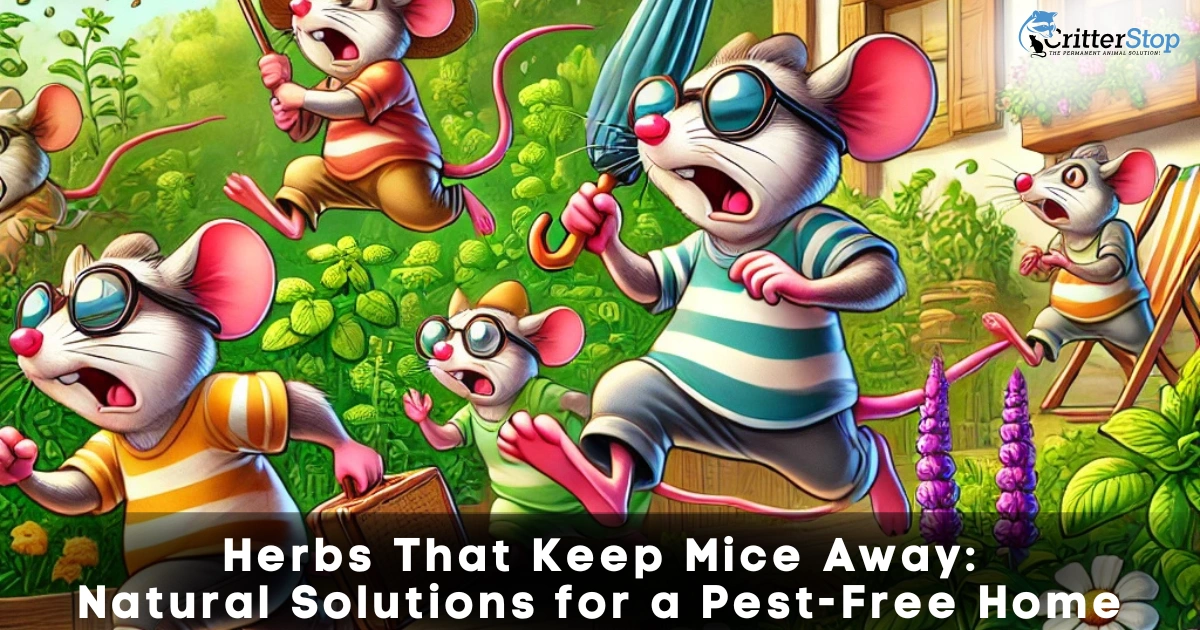
For those struggling with unwanted mice in their homes, there are natural solutions that can be highly effective. There are certain herbs that deter mice, offering a safe and eco-friendly alternative to chemical repellents. By integrating specific plants into the home environment, individuals can create a less inviting atmosphere for mice.
Mint, for example, emits a strong scent that most rodents find overwhelming. Similarly, lavender and rosemary can also help keep these critters at bay with their potent aromas. Understanding how these herbs work provides a practical method for maintaining a mouse-free environment while adding a pleasant fragrance to living spaces.
Many people may not realize that they can use everyday herbs to address pest problems. Establishing a herb garden or strategically placing potted plants can serve as both a decorative and functional solution. This approach not only taps into natural pest control but also enriches the home with greenery and fragrance.
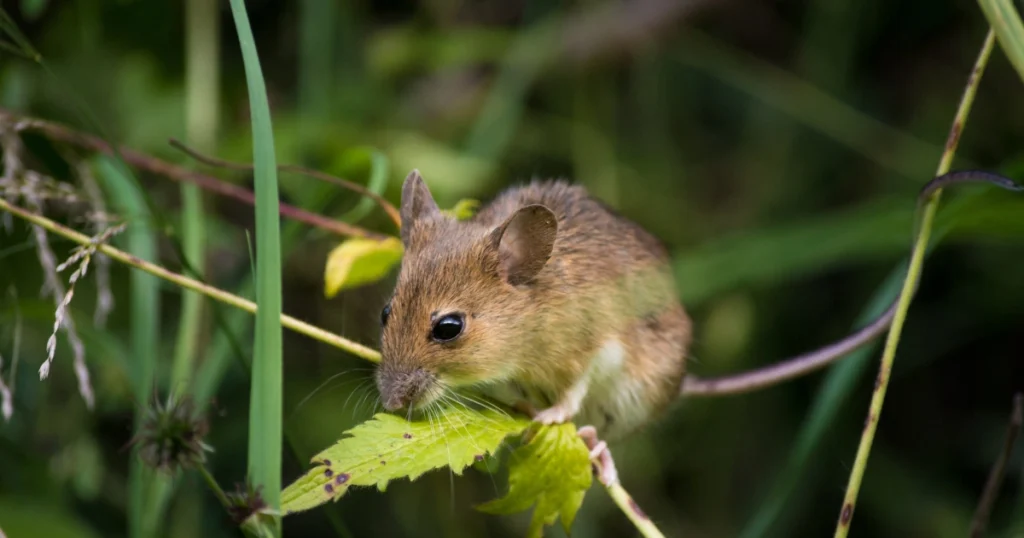
Herbs play a significant role in repelling rodents such as mice and rats. Understanding their historical use and the mechanisms by which they deter these pests can inform effective pest management strategies.
For centuries, various cultures have utilized herbs as natural pest deterrents. Ancient Egyptians and Romans often planted herbs like mint and thyme around their homes to ward off pests.
Traditional Uses:
These practices highlight the effectiveness of specific plants in keeping unwanted animals at bay. Such historical insights contribute to modern organic pest control methods that prioritize natural solutions.
The primary way herbs deter mice and rats is through their potent scents. Many rodents rely heavily on their sense of smell, and the strong aromas of various herbs can confuse or repel them.
Examples of Effective Herbs:
Using these herbs in gardens or as essential oils can create a barrier against these pests. Moreover, the application of dried herbs in entry points or around the home can enhance effectiveness and reduce rodent activity.
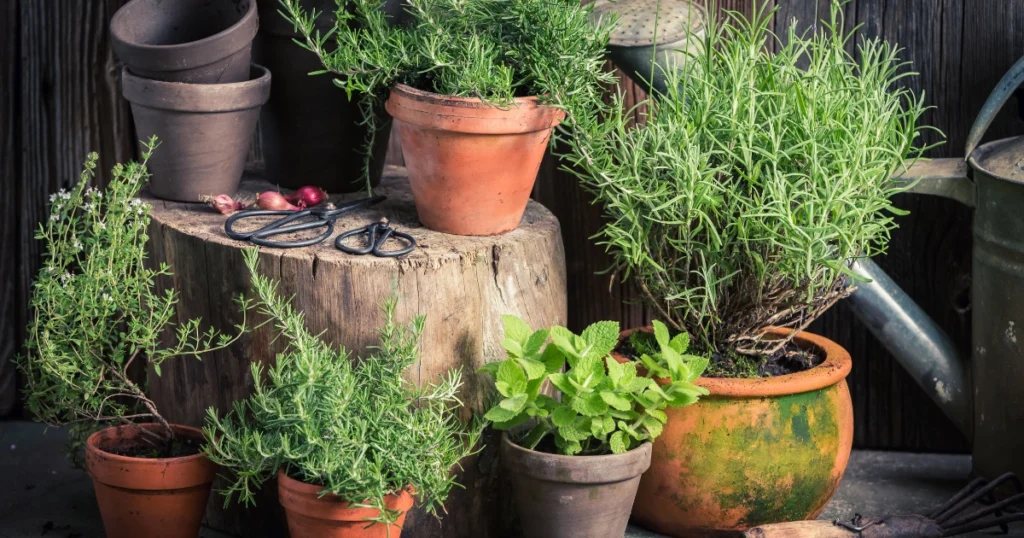
Certain herbs have shown effectiveness in deterring mice through scent and other natural properties. These plants offer a non-toxic method for keeping unwanted rodents at bay, making them suitable for households and gardens. The following discusses key herbs that can help repel mice.
Lemongrass contains citral, a compound known for its strong lemon scent, which is unappealing to mice. Placing lemongrass plants around entry points or using lemongrass oil as a spray can effectively create a barrier against mice.
Mice tend to avoid areas with strong citrus odors. Homeowners should consider cultivating lemongrass in pots or along perimeter areas to help deter mouse activity. Regularly refreshing the plants or oil application may enhance efficacy.
Mint varieties, especially peppermint, are notorious for their ability to repel mice. The strong aroma emitted by fresh or dried mint can disrupt the sensitive senses of rodents. Crushed mint leaves can be scattered in areas where mice are likely to enter.
Planting mint near doorways or windows can serve as a natural deterrent. Additionally, mint essential oils can be diluted and sprayed in critical areas for added protection. Mice are known to be particularly sensitive to menthol, which is predominant in mint.
Several other herbs can also help keep mice away. Sage, for instance, releases a strong scent that can act as a repellent. Burning dried sage leaves may additionally enhance its effectiveness.
Rosemary is another herb that can discourage mice. It has aromatic properties that mice typically avoid. Planting rosemary in gardens provides both culinary benefits and pest control.
Using these herbs strategically can contribute to a comprehensive pest management approach, combining aesthetics with functionality.
Proper planting and placement of herbs can significantly enhance their ability to repel mice. Selecting ideal locations and implementing companion planting strategies maximizes effectiveness against these pests.
Herb gardens should be strategically placed in areas where mice are likely to enter or nest. Focus on locations near entry points, such as:
Popular herbs for repelling mice include mint, rosemary, and sage. These plants emit strong scents that mice dislike. It's also beneficial to keep the herbs maintained with regular pruning, which enhances their fragrance. Maintaining a clean garden environment will further deter these rodents.
Companion planting involves positioning herbs alongside other plants to boost pest-repelling qualities. Certain combinations create a more hostile environment for mice and related pests.
Choosing perennial herbs can offer long-lasting deterrence. Additionally, planting these herbs in clusters can amplify their scent, creating a more effective barrier. The strategy not only protects against mice but also promotes biodiversity within the garden.
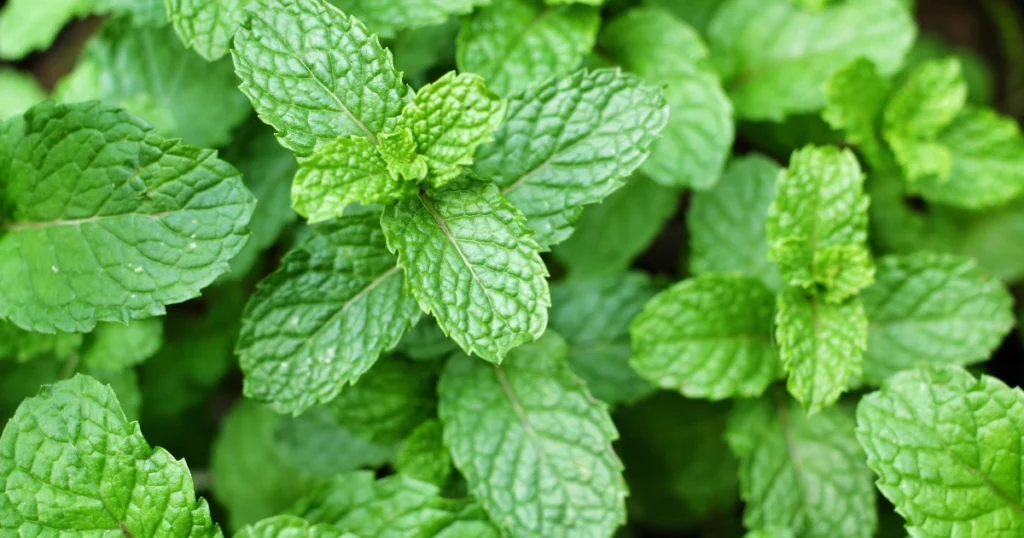
Caring for repellent herbs involves attention to their specific watering, soil, and pruning needs. Adequate maintenance ensures these herbs remain effective in keeping mice away.
Repellent herbs require well-draining soil to prevent root rot. A mix of potting soil and sand can enhance drainage. Soil pH should ideally be between 6.0 and 7.0 for most herbs.
Watering should be consistent but not excessive. Typically, watering once a week is sufficient, but this may vary based on the climate. It's essential to check the moisture level: if the top inch of soil feels dry, it’s time to water. Use pots with drainage holes to allow excess water to escape.
Regular pruning enhances the growth and potency of repellent herbs. It is recommended to prune at least once a month during the growing season. This encourages bushier growth, which increases the herb's essential oil concentration.
Harvesting should occur in the morning when the oils are most potent. Cut stems just above a pair of leaves to promote new growth. Drying the harvested leaves in a shaded, ventilated area helps retain their oils, maintaining their repellent properties. Regularly removing dead stems and leaves also promotes healthy growth.
Certain non-herbaceous plants have shown effectiveness in deterring rodents such as mice and rats. These plants can serve as natural repellents, often due to their strong scents or unpalatable characteristics.
These non-herbaceous plants can enhance gardening efforts by reducing rodent presence naturally and effectively.
Certain plants can attract mice due to their scent, shelter, or food sources. Identifying these plants can help in taking preventative measures for rodent control.
Several plants are known to be appealing to mice. These include:
Avoiding the use of these plants in areas susceptible to rodent activity can help mitigate infestations.
Using specific herbs within the home can effectively deter mice. Indoor planting solutions and decorative uses offer practical strategies that can leverage these natural repellents.
Certain herbs can thrive indoors while helping to repel mice. Peppermint is well known for its strong scent, which many rodent species find unpleasant. Lavender also has aromatic properties that may deter mice and can thrive in pots near windows or in various indoor spaces.
To use these herbs effectively, consider the following tips:
Regular pruning and watering help maximize their deterrent properties.
Incorporating herbs into home decor not only enhances visual appeal but also serves a functional purpose. A herb garden on a kitchen countertop can create a fragrant deterrent while providing fresh ingredients.
Herbs that work well include:
Using these herbs in decorative arrangements adds beauty to the home. They can be displayed in unique containers or mixed into floral arrangements.
Additionally, dried herbs can be hung in bunches or used in sachets. This can create an aromatic barrier in closets and storage areas. Regularly changing and replenishing dried herbs ensures their effectiveness in keeping mice away.
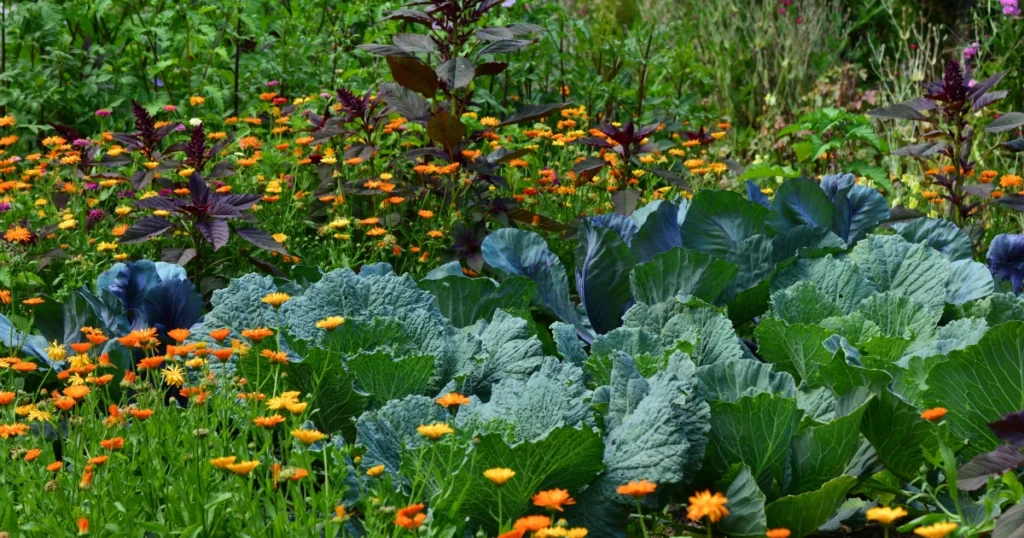
Employing herbs to deter mice can be more effective when combined with other strategic approaches. Implementing proper sanitation and physical barriers can significantly enhance the benefits of using herbs in pest control.
Maintaining a clean environment is crucial to prevent mice from invading living spaces. Proper waste management includes securing garbage in tightly sealed containers and regularly disposing of trash.
Food sources should be minimized, as leftover crumbs and open food can attract mice. It is advisable to store food in glass or metal containers rather than plastic.
Regular cleaning, particularly in kitchens and dining areas, eliminates potential nesting spots. Vacuuming and wiping surfaces reduce the likelihood of food particles that may lure in rodents.
Creating physical barriers serves as an effective strategy to keep mice out. Sealing cracks and holes in walls, floors, and foundations can prevent rodent entry.
Using steel wool or caulk to fill gaps around pipes and vents stops mice from finding access points. Installing door sweeps and repairing weather stripping can also block entry.
Fencing small areas with wire mesh can deter mice from accessing gardens or specific locations. Utilizing traps in conjunction with herbs can further minimize mouse populations, creating a multi-faceted approach to pest control.
The following FAQs address common inquiries about using herbs and plants to repel mice. Specific herbs, their fragrances, and their effectiveness are all explored.
Yes, lemongrass effectively repels mice due to its citral content, a compound with a strong lemon scent that rodents find unpleasant. Placing lemongrass plants near entry points or using lemongrass essential oil as a spray can create a natural barrier. Additionally, cultivating lemongrass in pots or along property perimeters helps deter mice while adding a decorative touch to your home.
Several plants are known for their ability to repel mice. Mint is a standout due to its potent aroma, which overwhelms a rodent’s sensitive nose. Lavender, rosemary, and bay leaves also serve as effective deterrents, offering natural and eco-friendly solutions. Strategically placing these plants or growing a herb garden near entry points can help maintain a mouse-free environment.
Herbs like peppermint, rosemary, and lavender are particularly effective at repelling mice. These herbs release strong fragrances that rodents find intolerable, making them ideal for use indoors and outdoors. Cotton balls soaked in peppermint essential oil or sachets of dried lavender placed in problem areas are practical ways to use these herbs.
Yes, mint plants are highly effective in keeping mice away. The strong menthol aroma from mint leaves disrupts a mouse’s sense of smell, deterring them from entering the area. Placing potted mint plants around your home or using fresh mint leaves in critical areas can help prevent infestations. Mint plants are also easy to grow, making them a convenient option for natural pest control.
Plants like eucalyptus, marigolds, and lemongrass are excellent choices for repelling mice. Their strong scents mask odors that attract rodents, creating an uninviting environment for them. These plants can be grown outdoors near entrances or indoors in pots to provide both aesthetic appeal and pest control. Regular care and refreshing their placement will ensure their effectiveness.
Plants such as peppermint, spearmint, and lavender are known for their ability to deter mice and rats. Their strong scents can mask other odors and create an unwelcoming environment for these pests.
Peppermint and wormwood are particularly effective in keeping mice away from the home. Planting these herbs near entry points can help to create a barrier that mice find repugnant.
Certain plants like marigolds and sage can discourage mice from inhabiting a garden. Their odors are unpleasant to rodents, making them less likely to make a home nearby.
Camphor is often cited as a natural remedy for repelling mice. Its strong scent can be effective in keeping mice at bay when placed in strategic locations.
Mice are particularly sensitive to strong scents such as peppermint and vinegar. These odors can disrupt their senses, making the area less appealing.
In addition to peppermint oil and vinegar, using essential oils such as eucalyptus and tea tree oil can be beneficial. These natural repellents can be applied to cotton balls and placed around the house for maximum effect.
While natural remedies like herbs and plants can effectively deter mice, they may not always resolve larger infestations. For long-term and comprehensive solutions, professional services are crucial. At Critter Stop, we specialize in humane wildlife removal, ensuring your home remains pest-free. With our proven methods and a focus on customer satisfaction, we’re here to address your mice exterminator needs effectively.
Combining our expertise with natural deterrents can help create a safe, rodent-free environment. When you’re ready to take the next step, don’t hesitate to reach out to us at Critter Stop at 214-380-1667. Let’s work together to protect your home and restore your peace of mind.
Visit our Critter Library and learn more about our furry friends